A Kurdish Female Fighter's War Story: 'I Don't Know How Many I've Killed in Kobani - I Don't See Isis as Human'
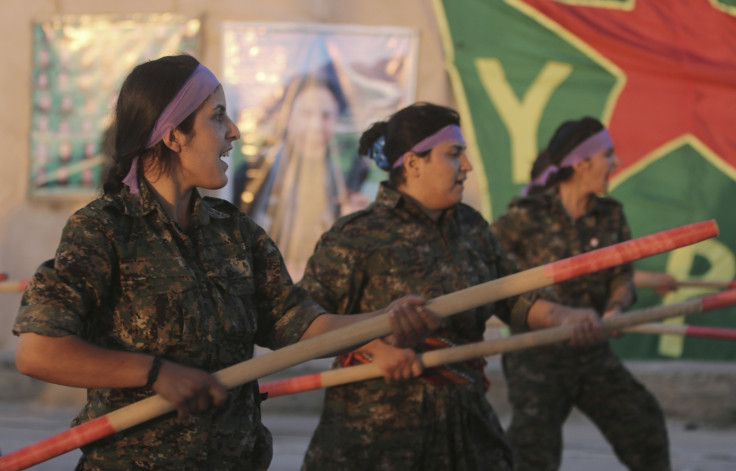
Kurdistan's female fighters are making history in their struggle with Islamic State (Isis) militants in Kobani. Never before have female combatants played such a pivotal role in a major combat zone, and never before have they earned such international attention for their efforts.
Reports suggest one in three of Kobani's defenders are female, fighting under the banner of the Women's Protection Unit (YPJ), and in fact the entire defence force is being co-commanded by a woman, Narin Afrin. Narin and her troops now stand on the brink of victory having driven IS out of the majority of their strongholds.
IBTimes UK has gone behind the Kobani lines to deliver an exclusive interview with one of the city's female fighters, Bejan Ciyayi, who has played a crucial role in the conflict since the outset.
Bejan is 32 and hails from the city of Van, which she refers to as Turkish Kurdistan. She has been an active supporter of Kurdish independence since her teens.
I joined the PKK (the Kurdistan Workers' Party) when I was 16, along with a group of friends. I was never married; it seemed pointless to me to get married and bring a child to this world, before making it a nice place to live for children.
I never liked war, but I have always been interested in those who have chosen to fight for freedom. Growing up, I wanted to be a writer; I would have liked there to be a world in which people never had to fight in order to express themselves. But this is not the world we live in.
Earlier this year, IS militants, having conquered vast swathes of Iraq and Syria, laid siege to the Mount Sinjar region of northern Iraq. Around 40,000 mainly Kurdish-speaking Yazidis, who had fled to the mountain in fear of the IS insurgents, were trapped.
I was in the Qandil mountains at that time. I proposed to go to Mount Sinjar to fight against IS and was deployed there. Then I was told that I could go to Kobani when this crisis broke out.
I am now at the eastern front in Kobani. This is the front with the most intense fighting. But I am ready to do everything in order to prevent a similar tragedy that took place in Sinjar.
There are ideological, political and sociological reasons behind my desire to fight against Isis. I have sworn to defend the Kurdish people against all evil. And anyway, Isis is exactly the kind of evil that our current global system nurtures. This organisation is attempting to play with the character of our geography.
Ultimately, I could not turn a blind eye to what was going on in my country. If I was faced with the same decision again, I would pick the route that I have picked today. I now feel lucky to be witnessing these historical days.
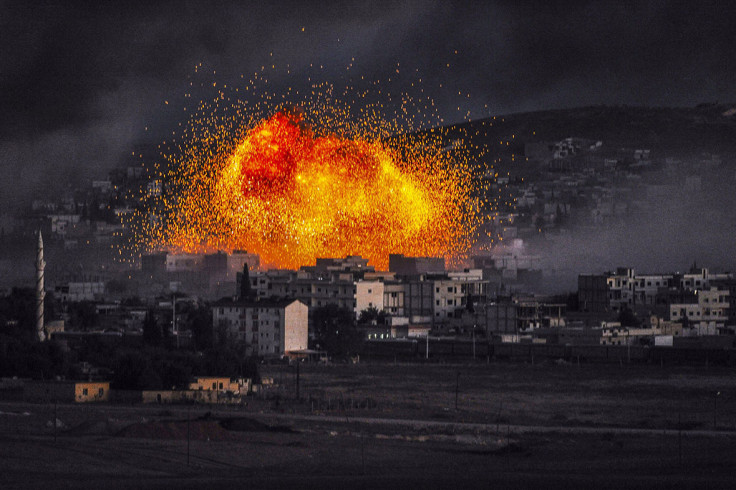
Reports from Kobani suggest its female defenders are now using a variety of tactics to thwart the IS insurgents, including ambushes, traps and suicide attacks, as well as conventional weapons.
Our female fighters are well trained in using all the weapons we possess, from assault rifles to small mortars. But women are best at using the Dragunov sniper rifle, because women are very good at taking aim. It requires calm, patience and finesse; women excel at these.
Our female friends are capable of infiltrating enemy lines. Just recently four female friends infiltrated an Isis position, killed all of them, picked up several rifles and returned safely. And this is not even the most extraordinary scenario.
One of my comrades, Arin Mirkan, recently blew herself up, and she is not the first female fighter in the Kurdish freedom movement to carry out such an attack. She followed a long line of such martyrs. Whenever there has been a threat of genocide against our people, Kurdish women have resorted to such actions.
However, [the suicide attack] is not a tactic of our fight. It is not even approved of by our organisation. This kind of action is completely decided by the person carrying it out. It is not even a type of attack. It is a sacrificial action, the person undertaking such an action is sacrificing her life in order to defend her people from a force wanting to commit genocide.
Personally, I wouldn't want to say how many Isis fighters I've killed so far. I don't see them as militants. They are vile human beings. I have never wanted to kill any human being, but I know that if we don't kill them, they will kill the children, and rape the women.
IS has beheaded several members of Kurdistan's Women's Protection Unit (YPJ) and posted them on Twitter in attempt to intimidate those fighting against them.
I've come close to death myself on many occasions. In the heat of the moment it's hard to talk about the experience. But after the moment it sinks in.
There is a natural fear of death. But to be honest I wouldn't want to die in a dirty war against IS filth. My dream is to see them exterminated. The world must be rid of this dirt and I want to witness that. I must play a role in that. When you choose a path like this, and you know why you have chosen it, you accept death is a sacrifice that is part of the life choices you have made.
If I was to die, I'd rather it be while clashing face-to-face, as opposed to a trap or an unexpected suicide bomb. I don't know why, but I feel like I am not going to die. I think it might be the desire to see my people and humanity to be victorious that makes me feel like this.
I am not scared of being captured, tortured or enslaved by IS, because I will never let that happen to me. I will always have a single bullet with me just in case that scenario becomes a reality.
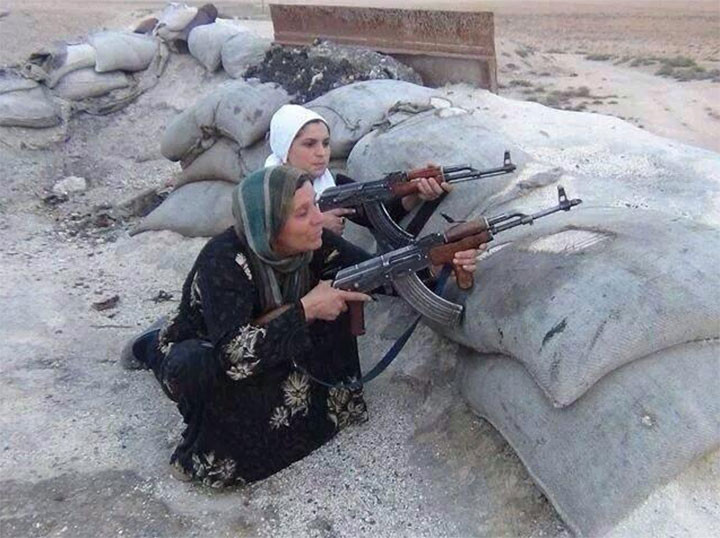
Many reports have suggested IS is terrified of the women it is fighting in Kobani, although the organisation itself denies this.
It is true IS is scared of female fighters. In fact it tries to avoid attacking positions with women in them.
Some explain this by saying: "If they are killed by women then they can't go to heaven," but I think this has more to do with the fact that they have never come across women as determined and as courageous as us.
IS see women as sex objects. And yes, this does motivate me when I fight against them. This is why I know IS is scared of us women in the YPJ. They know how they treat women, and they know we are aware of what they do and can feel our resentment and hatred of them.
This is what makes us such big enemies, our approaches to women. We have made the liberation of women a central idea to our struggle, whereas it has made rape central to its way of life.
The success of women in Kurdistan is the success of all women against the patriarchal system in the world and this makes me very happy. In this sense, I am proud of all women. We even have female fighters from other countries.
The commander of the Kurdish female forces, Narin Afrin, has earned international renown for her bravery and intelligence in defending Kobani.
Actually, her name is Narin Engizek. Engizek is a mountain that is visible from Afrin. But, like most of our comrades, people are known by the town that they come from.
IS views women as sex objects - and that's why they fear us
Narin, in Kurdish, means delicate. And in reality she is very delicate. She has been in the organisation for a long time. She has stayed with our leader Abdullah Ocalan and received ideological training from him.
I have personally known her since 1999. She is a humanist and a realist and also very courageous. She is a significant figure in the revolution in Rojava (the Kurdish area of Syria, which includes Kobani).
Another female fighter who has made the headlines is Rehana, who has allegedly killed more than 100 IS fighters. Her bravery recently made her a viral sensation on Twitter.
I don't think it is ever right to highlight any single person in a war. war is a collective effort. Within our organisation, the discussion on who has killed more enemies is non-existent.
There are many heroes within our organisation that have never killed anyone. I have not heard any of our friends talking about how many people they have killed.
Saying that, I would thank Rehana and all our female fighters who have killed IS members.
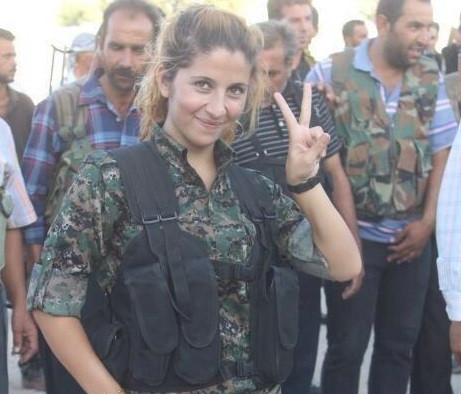
There have been some reports that the achievements of the YPJ have sparked disagreements with its male equivalent, the People's Protection Units (YPG), and criticism from Kurdish society in general.
We, as the female army, have never separated or compared ourselves to the movement in general. We, as women, see ourselves as the leaders of the Kurdistan freedom struggle. I believe we, as women, boost the morale of our male comrades and the Kurdish people in general.
The YPJ and the YPG fight in the same trenches. The YPJ's success is the YPG's success and vice versa. The YPG respect all our decisions that are made by the YPJ, they do not have a right to meddle in the decisions of the YPJ. The YPJ has proven itself to be a beacon for not only the women of the Middle East but to the women of the world.
We, as female fighters, never expect anything in return from our people; I think it is this sacrifice that leads to our people being very supportive of the female fighters. There is a sincere love between us and our people. I can't express this in words.
There are parents who have been affected by the death of a female fighter more than what they would if their own child had died.
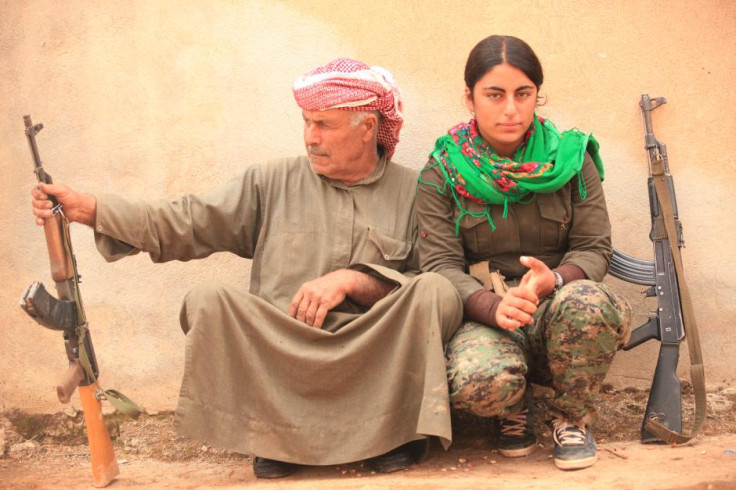
The lack of international support for the Kurdish defenders in Kobani has provoked criticism in some quarters, with Turkey receiving savage condemnation.
The Turkish state has made it an ambition to exterminate the Kurds. There is not a single alliance that it will refrain from in order to accomplish this ambition. There is a revolution in Rojava. The Turkish state is worried about this revolution spilling across its own borders.
YPJ leader Narin Afrin is a humanist and a realist and also very courageous
This is why IS is attacking Rojava and why the Turkish state is supporting their effort.
The Rojava Revolution is very important for the AKP (Turkey's largest political party) and IS because it is one of the most important social developments in the past 10 years anywhere in the world. Now if it were to defeat IS, no one could stop the development of the revolution to other places in the world.
Beyond Turkey - is there any country out there that doesn't understand how dirty this war is? Is there any state out there that doesn't know how this war can be terminated with the fewest deaths? All the states in the world no how this war can be terminated. They know what needs to be done.
I am a fighter; it is not my job to ask for weapons from any country or state. My trust is in our determination rather than any weapon. Those that have the courage to fight will find their weapons too.
Those who led IS to Mosul allowed IS to take all those weapons. It was Turkey that sent train loads of weapons to IS; now how can I ask these states for weapons? But finally these states realised IS will one day turn on them too.
Now I think that rather than help us, these states are trying to prevent IS from turning up at their doors. Those that want to give us weapons are doing so with this in mind. This may be overly analytic but this is my understanding of the Middle East.
At least the air strikes have become more effective as the situation here has become more serious. But this was probably a result of the political atmosphere. If Kobani had fallen, the whole world would have fallen...
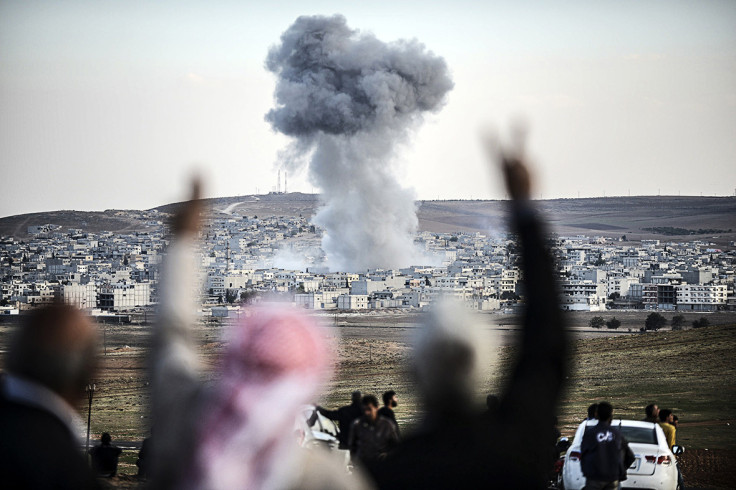
But Kobani has not fallen. In fact, despite the lack of international aid, the Kurdish defenders are mounting an extremely successful resistance and pushed IS out of the majority of its city strongholds.
Even if Kobani had gone, the Kurds would still have been victorious. That's because Kobani made a name for itself in the fight for humanity. The whole world has to admit this legendary resistance is unprecedented. Now the people of Kobani are fighting against IS on behalf of humanity, no one can deny this.
If Kobani had fallen, the AKP and IS would have everyone believe a revolution had been defeated. But if this legendary resistance is crowned with victory, and right now this seems even more likely, then this revolution will declare itself in the face of the suppressive and backwards states of the Middle East.
The Kurds will have opened the doors to greater opportunities. Or, in other words, the Kurds will have transformed the disadvantages into advantages. As women our position of self-defence will not change. At the end of the day we live in the Middle East and there are many powers that want this region to be in constant chaos, so we have to be prepared to defend our people at all times.
Many have suggested the YPJ's struggle could lead to the empowerment of women across the Arab world.
Even now, there are women from across the Middle East who have asked to be trained in order to defend themselves and their countries. We do tell people that this cannot only be achieved through the use of arms.
If Kobani had fallen, then the AKP and IS would have everyone believe that a revolution has been defeated - but the Kurds would still have been victorious.
There are social, political and ideological factors in this struggle. We will never refrain from supporting the women of our region. But not only our region, who can deny that our struggle has not had an impact on all the women of the world?
Organisations such as IS are the embodiment of the climax of the patriarchal system we live in. IS go about subordinating women by capturing, raping and enslaving them. But we do know that women suffer in even the most "developed" of countries.
IS's treatment of women doesn't overshadow what women suffer in other parts of the world; rather, I believe, it uncovers it.
Having played such a crucial role in Kobani, the YPJ fighters who survive the conflict are likely to be feted as heroes for the rest of their lives and held up as champions of modern Kurdistan.
There will be a lot of things to do [when the fighting is over]. I will probably write. I think a novel about this war needs to be written. The best person to do this would be someone who lived through it.
The last words of many of our fallen comrades have been "this story must be told". I cannot forget these words. The spirits of these people must be transferred to future generations. I would have wanted to elaborate so much more for this story but hopefully after the war will be more opportunities.
The problems of democracy, economy and sociology still persist. Life is a struggle in general, so the struggle will continue. We are happy with our lives and see ourselves as candidates to promote humane values.
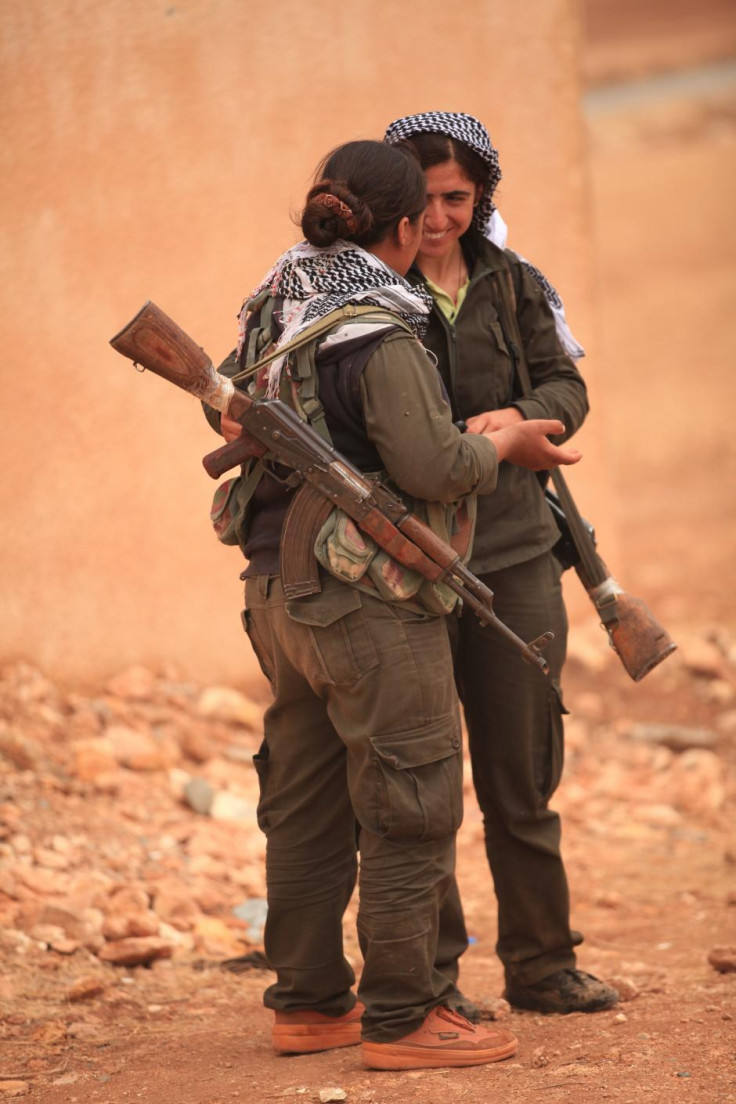
Regarding the future of Kurdistan, I have never dreamt of any state. Since childhood I have always been afraid of state institutions. I find them inhumane. I am glad that since 1999, our paradigm changed and we rid ourselves of for this burden.
I do want a democratic homeland, however. And I hope for all countries in the world to shift from a nation-statist paradigm, to a democratic nation paradigm. The Kurds have never been a nationalist society, but they have always wanted their freedom.
Of course it is natural for the Kurds to want to live freely in their country. However, this is a completely different thing from wanting to form a state. We don't recognise these fake borders that have divided our country into four different states.
Everyday, here in Kobani, there were children who used to go to the border to play with their cousins from Suruc. There are men in Qamishlo who fall in love with women from Nusaybin that is only a couple of hundred metres away but is divided with an ugly looking fence.
Despite the Turkish state's relentless attempts of assimilation, I never became a Turk. Otherwise, what would I be doing here today?
For us there is no old or new life. I have devoted my life to my people, this will not change in times of peace. When the war is over, we will have a lot of building to do.
© Copyright IBTimes 2025. All rights reserved.






















